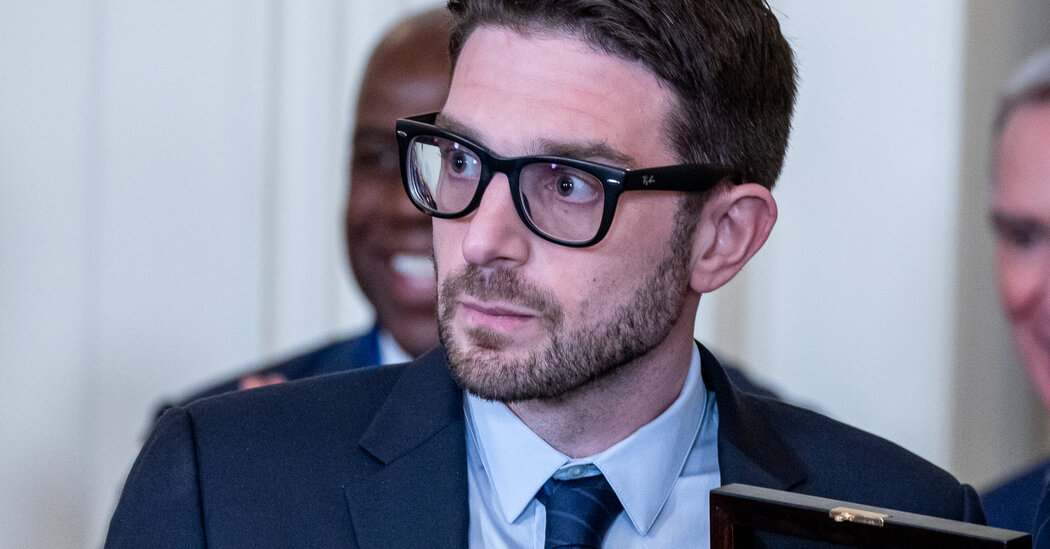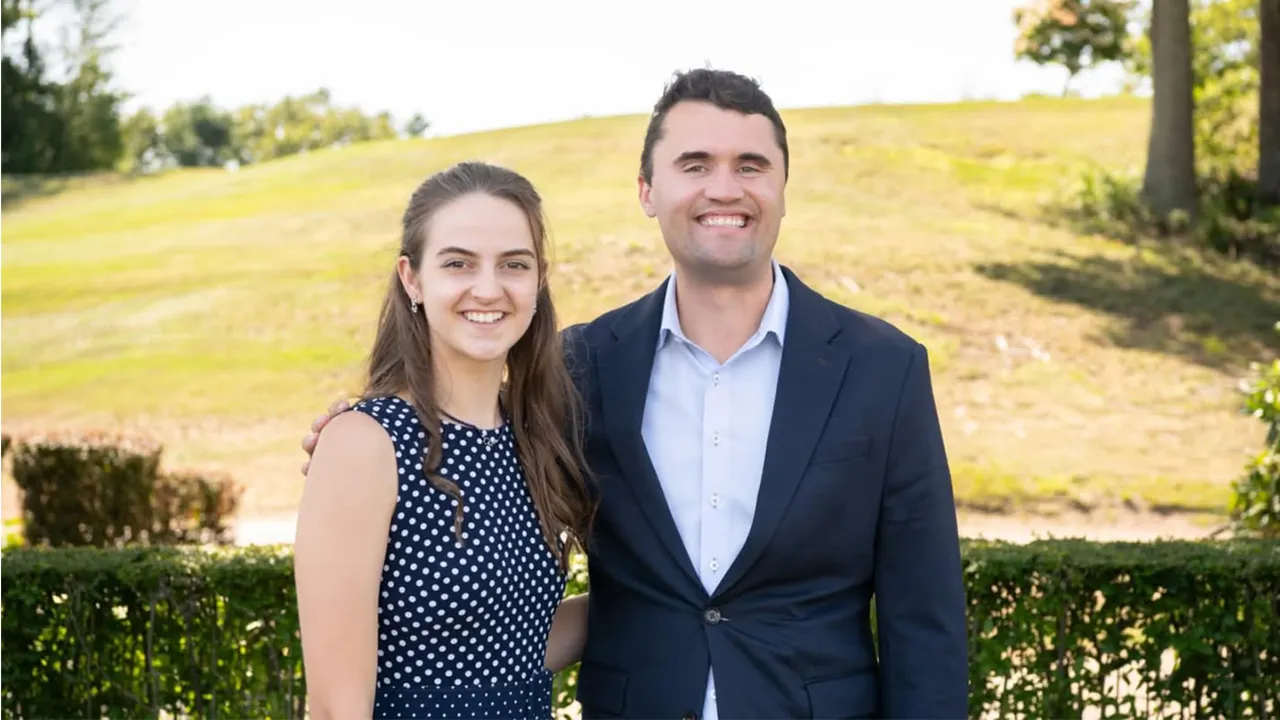
During a panel discussion featuring world leaders and philanthropists in Manhattan on Thursday afternoon, Alex Soros said the $23 billion philanthropic organization he leads would not cave to pressure from President Trump.
Mr. Soros, the son of the billionaire investor and Democratic megadonor George Soros, defiantly told attendees that it had done nothing wrong and would back away from its human rights work “over my dead body,” according to two people who attended the panel who spoke on the condition of anonymity because it was an invitation-only event.
The remarks came in response to a question about a report in The New York Times revealing that a senior Justice Department official had instructed more than a half dozen U.S. attorney’s offices to draft plans to investigate the Open Society Foundations, which was started by Mr. Soros’s father.
The effort has intensified since the assassination of the conservative activist Charlie Kirk. Mr. Trump and his administration have asserted without evidence that liberal groups are stoking a violent conspiracy against conservative values and the American way of life. He signed a presidential memorandum on Thursday ordering his administration to investigate what he claimed were rich people and organizations funding left-wing political violence around the country.
The cumulative effect has left philanthropic and progressive donor communities on edge.
“This moment is dangerous for all of us because organizations are being targeted because of what and who they fund and because it is perceived that they are funding things that don’t align with the political preferences of a particular administration, of this administration, and that is wrong,” said Akilah Watkins, the president and chief executive of Independent Sector, the national membership organization representing nonprofits and philanthropic foundations.
A skittishness has taken over the Ford Foundation, according to three people in touch with it, which owns the building where Alex Soros spoke on the panel on Thursday. The Ford Foundation was called out by Vice President JD Vance alongside Open Society after the assassination.
Even before this week, the $16 billion foundation had been scrutinizing its distributed grants that officials there fear could be criticized for violating prohibitions on partisan political activity, according to a person close to the foundation. “We are following our standard due diligence practices across our grant making,” the foundation said in a statement.
The foundation’s board has been concerned about recent doxxing attempts against its directors, according to two people close to the foundation, both of whom requested anonymity because they were not authorized to discuss internal foundation matters.
On Tuesday, the foundation abruptly canceled a long-planned dinner to honor its departing president, Darren Walker — a decision people familiar with the foundation’s thinking attributed to security concerns and a desire to adopt a lower profile. The foundation said in its announcement to attendees that the cancellation “reflects our care and sensitivity to the moment we are in.”
“We always take the security of our staff, leadership and partners seriously,” the foundation said in its statement. “The foundation transitioned from a larger event celebrating Darren’s storied tenure to a more intimate event with staff.”
Faced with daunting choices, some in progressive finance circles have moved into a defensive crouch.
Some have stopped sending emails out of concern that they could be subpoenaed in legal cases the Trump administration could bring. One donor recently expressed concern that even donations made to groups anonymously could be unmasked by the government in a federal inquiry. And foundations are fearful about investigations from Immigration and Customs Enforcement into the immigration status of their employees.
Even before news of the Justice Department’s move to investigate Open Society, some major philanthropies declined to sign a letter last week pushing back on Mr. Trump’s attacks on the sector. They feared that it would be seen as too oppositional to a powerful administration and that a bipartisan approach would be better, according to two people familiar with the conversations. Ford and Open Society signed the letter.
Reid Hoffman, a co-founder of LinkedIn and one of the country’s biggest Democratic donors who was named by Mr. Trump on Thursday as another potential target, has largely vanished from political giving in 2025 and is much less publicly voluble about his disagreements with Mr. Trump, people close to him say.
Still, in the pantheon of megadonors vilified by political opponents, George Soros and the Open Society Foundations stand alone.
In recent years, Mr. Soros, who turned 95 last month, has stepped back from day-to-day involvement at the organization and largely receded from the public eye. He did not attend the main festivities for his son Alex’s lavish wedding in the Hamptons in June or an event last fall in Washington honoring him that was hosted by the Democracy Alliance donor club he helped establish.
The board of Open Society is now chaired by Alex Soros, 39, who has taken a more hands-on role in Democratic politics and at the organization.
He has been confrontational toward Mr. Trump on social media. And people close to him say he is privately determined to fight back, believing that the nation is on the brink of a deep crisis.
At a fund-raiser at his New York home last week for Scott Colom, a Democratic Senate candidate in Mississippi, the younger Mr. Soros joked that the right wing blames him for everything, according to three people who attended the event who requested anonymity to describe it because it was private.
At Open Society, he has worked to shore up morale. In an April email about a rumored executive action from Mr. Trump targeting the tax exempt statuses of progressive groups, he told staff that “we do not know what will come, or what threats it may carry, but we are certain that we will not cede any ground without a fight nor be cowed into silence.”
The email suggested that the organization would not be vulnerable to investigations because it adhered to rigorous compliance practices and operated “within the bounds of the law while also refusing to surrender our legal and constitutional rights to free speech, association, due process and the rule of law without challenge.”
The Justice Department directive urging prosecutors to investigate Open Society Foundations cited a report by a conservative group, Capital Research Center, which said Mr. Soros’s organization had donated over $80 million to groups “tied to terrorism or extremist violence.”
The report did not accuse Open Society of bankrolling or ordering specific violent acts. Rather, it pointed to statements made by organizations it helped fund — some of which applauded terrorist acts like Hamas’s Oct. 7, 2023, attack on Israel, or encouraged U.S. activists to block roads or destroy property during protests.
Of the grantees that the report cited for “directly assisting domestic terrorism,” eight are active U.S.-based nonprofits. Although Mr. Soros is being targeted for helping them financially, those U.S. nonprofits themselves are legal entities operating openly.
In many cases, those groups have many donors beyond Mr. Soros’s organization.
One group cited in the report, the Center for Third World Organizing, got about 2 percent of its revenue from Mr. Soros’s groups between 2020 and 2023, tax filings show. The center also received gifts during the same period from some of the largest philanthropies in the United States, including the Robert Wood Johnson Foundation and funds connected to the financial giants Morgan Stanley and Vanguard.
In big money circles across the political spectrum, there is a sense that picking on the Soroses and their philanthropy could backfire.
On the right, there is concern that the offensive could set a precedent that might be used to target conservative nonprofits and donors the next time Democrats control the White House.
And on the left, some are cheered that Open Society’s resources and history make it better positioned to fight back than other smaller or newer groups.
The elder Mr. Soros, who was born into a Jewish family in Hungary, has weathered harrowing threats before. He survived the Nazi occupation as a child in part by posing as the Christian godson of a government official.
And the Open Society Foundations for years has dealt with heavy-handed tactics around the world. The group moved its operations out of Mr. Soros’s native Hungary under intense pressure from Prime Minister Viktor Orban, whose authoritarian approach has been held up by some on the American right as an example of how to deal with political opponents.
Inside the philanthropy, some are concerned that an investigation by the Trump administration could be costly to defend, diverting resources from its programming. But there is also confidence that it could be fended off, because of the organization’s rigorous approach to grant making.
By standing firm, some around the philanthropy believe it could set an example for other groups facing similar attacks, akin to the stand taken by Harvard against Trump administration pressure.
Yet a mood of dark humor has emerged in the Soros orbit — and the larger philanthropic sector.
On Wednesday night, at a cocktail reception in Manhattan hosted by Open Society, a foundation official joked to the crowd — which included Alex Soros and the foundation president, Binaifer Nowrojee — that they should enjoy the party because it might be their last night of freedom before they were imprisoned.
Sharon LaFraniere contributed reporting.



